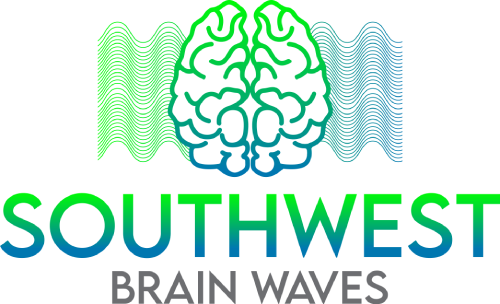Mental health challenges affect millions of individuals worldwide, disrupting lives and creating a significant impact on overall well-being. Traditional treatment methods like medication and therapy have their merits but often come with limitations, such as side effects, long treatment durations, and variable efficacy. In this evolving landscape of mental health care, BrainsWay’s Deep Transcranial Magnetic Stimulation (Deep TMS) therapy has emerged as a beacon of hope, revolutionizing the way we approach mental health treatment.
Understanding Deep TMS Technology
Deep TMS is a cutting-edge, non-invasive medical treatment designed to address a variety of mental health conditions. Unlike traditional Transcranial Magnetic Stimulation (TMS), Deep TMS penetrates deeper brain structures to target areas associated with specific mental health disorders. This advanced technology utilizes magnetic fields to stimulate nerve cells, thereby modulating brain activity and providing relief from conditions like Major Depressive Disorder (MDD), Obsessive-Compulsive Disorder (OCD), anxiety disorders, late-life depression, addiction, and more.
Why Deep TMS is a Game-Changer
- Non-Invasive and Drug-Free One of the most significant advantages of Deep TMS is its non-invasive nature. Patients undergo treatment without the need for surgical procedures or anesthesia, making it a safer option compared to invasive therapies. Moreover, it provides an effective alternative for individuals who prefer not to rely on medication or experience adverse side effects from pharmaceuticals.
- FDA-Approved and Clinically Validated Deep TMS has received FDA approval for treating MDD and OCD, with ongoing research supporting its efficacy for other conditions. A growing body of clinical case studies highlights its success in improving symptoms and quality of life for patients.
- Personalized Treatment Approach Each mental health condition stems from unique neurological patterns. Deep TMS customizes its approach by targeting specific brain regions linked to the disorder, ensuring a tailored and effective treatment experience for patients.
- Minimal Downtime and Quick Recovery Unlike some therapies that require extensive recovery periods, Deep TMS sessions typically last around 20 minutes and involve minimal downtime. Patients can resume their daily activities immediately after treatment, making it a convenient option for busy lifestyles.
Conditions Treated by Deep TMS
- Major Depressive Disorder (MDD)
- MDD is a common yet debilitating condition affecting millions worldwide. Traditional treatments like antidepressants may not work for everyone, leaving some individuals feeling hopeless. Deep TMS has demonstrated significant success in alleviating depressive symptoms by targeting the prefrontal cortex, a brain region linked to mood regulation.
- Obsessive-Compulsive Disorder (OCD)
- OCD can be challenging to treat with standard therapies alone. Deep TMS specifically targets the anterior cingulate cortex, a region associated with OCD, providing substantial relief for individuals struggling with intrusive thoughts and compulsive behaviors.
- Anxiety Disorders
- From generalized anxiety to social phobia, anxiety disorders can severely impact daily functioning. Deep TMS’s ability to modulate neural activity in anxiety-linked brain regions offers promising outcomes for individuals seeking effective treatment.
- Late-Life Depression
- Older adults with late-life depression often face unique challenges, including resistance to conventional therapies. Deep TMS provides a gentle yet effective solution, enhancing mood and improving cognitive function without the risks associated with medication in older populations.
- Addiction Challenges
- Addiction recovery often involves complex neurological changes that traditional approaches may not fully address. Deep TMS helps regulate the brain’s reward system, providing support for individuals battling substance use disorders.
Patient Success Stories
Many individuals have experienced life-changing results through Deep TMS therapy. One such case is Sarah, a 34-year-old teacher who battled severe depression for over a decade. Traditional treatments offered little relief, but after undergoing a series of Deep TMS sessions, Sarah reported a significant reduction in depressive symptoms and an improved outlook on life.
Another inspiring story is that of Mark, a 45-year-old entrepreneur struggling with OCD. Intrusive thoughts and compulsive behaviors had taken over his life, impacting his personal and professional relationships. Deep TMS therapy targeted the root of his condition, providing Mark with the tools to regain control and restore balance in his life.
The Science Behind the Success
Deep TMS therapy works by sending magnetic pulses to specific areas of the brain, stimulating or inhibiting neural activity as needed. By rebalancing brain circuits, Deep TMS helps alleviate symptoms of mental health disorders. The therapy’s precision ensures that only the relevant brain regions are targeted, minimizing side effects and maximizing efficacy.
What to Expect During Treatment
A typical Deep TMS session involves the following steps:
- Initial Assessment A thorough evaluation by a mental health professional helps determine if Deep TMS is the right fit for the patient.
- Treatment Session Patients wear a specialized helmet that delivers magnetic pulses to targeted brain regions. The procedure is painless and requires no sedation.
- Post-Treatment Care Patients can resume normal activities immediately after each session. A full course of treatment usually spans several weeks, with sessions scheduled five days a week.
Looking Ahead: The Future of Mental Health Care
As mental health awareness continues to grow, innovative treatments like Deep TMS are reshaping the landscape of care. With its non-invasive approach, proven efficacy, and personalized treatment options, Deep TMS therapy offers hope to individuals who may have exhausted traditional methods.
At Southwest Brain Waves, we are committed to providing cutting-edge solutions to address mental health challenges. Our dedicated team works closely with patients to ensure a supportive and transformative treatment experience. By embracing technologies like Deep TMS, we aim to empower individuals to reclaim their lives and achieve lasting mental wellness.
Conclusion
Mental health is a vital component of overall well-being, yet many individuals face barriers in finding effective treatments. Deep TMS therapy represents a revolutionary step forward, offering a safe, non-invasive, and clinically validated option for those in need. At Southwest Brain Waves, we stand at the forefront of this transformation, committed to bringing hope and healing to our patients. Together, we can revolutionize mental health care, one mind at a time.

